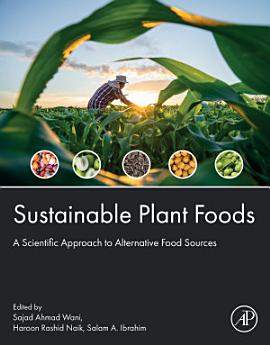Sustainable Plant Foods: A Scientific Approach to Alternative Food Sources
About this ebook
About the author
Dr. Wani is currently working as DR. D.S. Kothari post-doctoral fellow in the department of Food Science and Technology, Sher-e-Kashmir University of Agricultural Science and Technology, Kashmir, J&K, India. He completed his Master’s Degree in Food Technology from IUST, Awantipora, J&K, India and PhD from Sant Longowal Institute of Engineering and Technology, Punjab, India. His areas of interest include extrusion technology, food formulation, and innovative food product development.
Prof. Haroon Rashid Naik is the Director planning and monitoring at Sher-e-Kashmir University of Agricultural Science and Technology, Kashmir, J&K, India. He established the department of Food technology at IUST Awantipura and created the food tech programs in SKUAST. He has supervised more than 20 MSc. Students and 18 Ph.D students. His areas of interest include design and development of food processing machinery, new innovations in food processing and management of research activities.
Dr. Salam A. Ibrahim is a Professor of Food Science in the Food and Nutritional Science Program at North Carolina Agricultural and Technical State University, USA. He has established a research program around dairy technology, yogurt starter cultures, probiotics, and bioconversion processes, in addition to food safety and the use of natural compounds to inhibit the growth of foodborne illnesses. His program is well-funded by the National Institute of Food and Agriculture-United States Department of Agriculture (NIFA-USDA), the Department of Homeland Security (DHS), and other funding agencies. In addition, the food microbiology laboratory has strong connections with the food industry and often receives funds to support students around fermentation and the production of stable and functional probiotics products.






